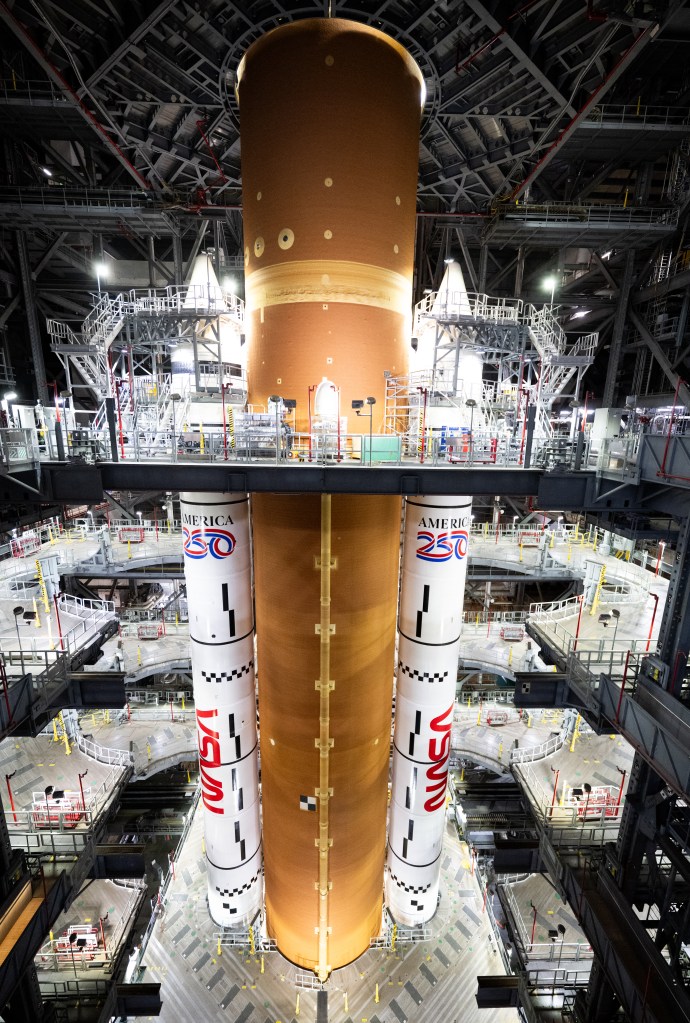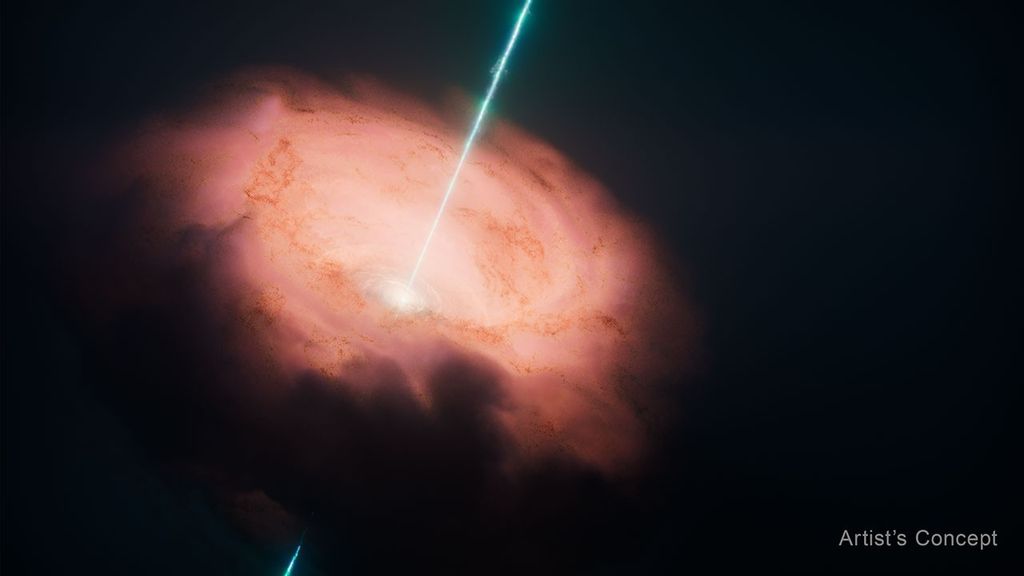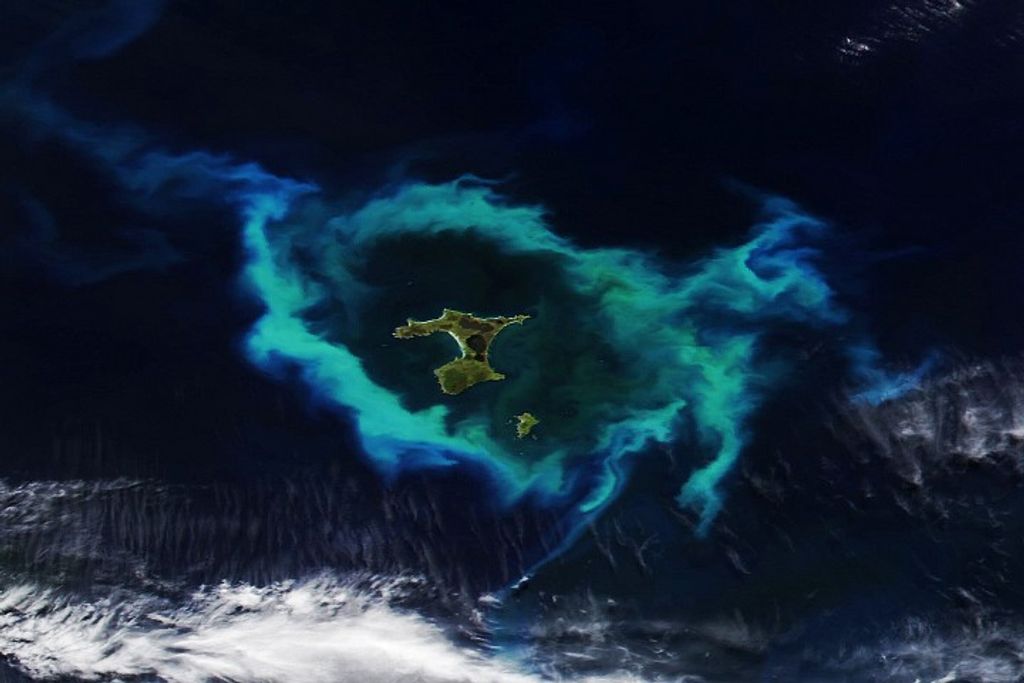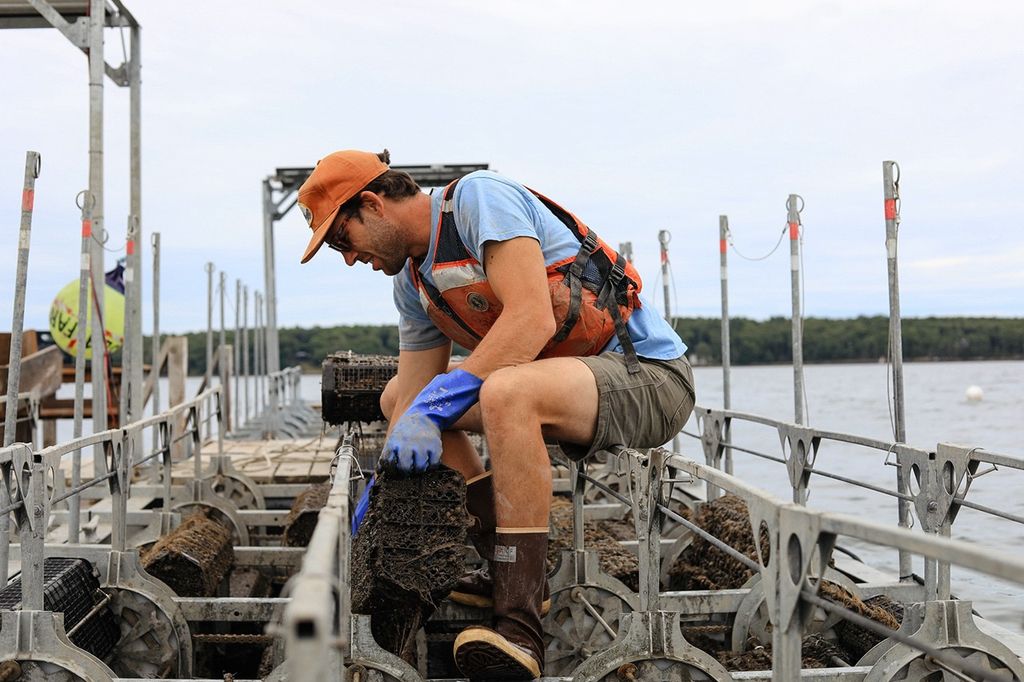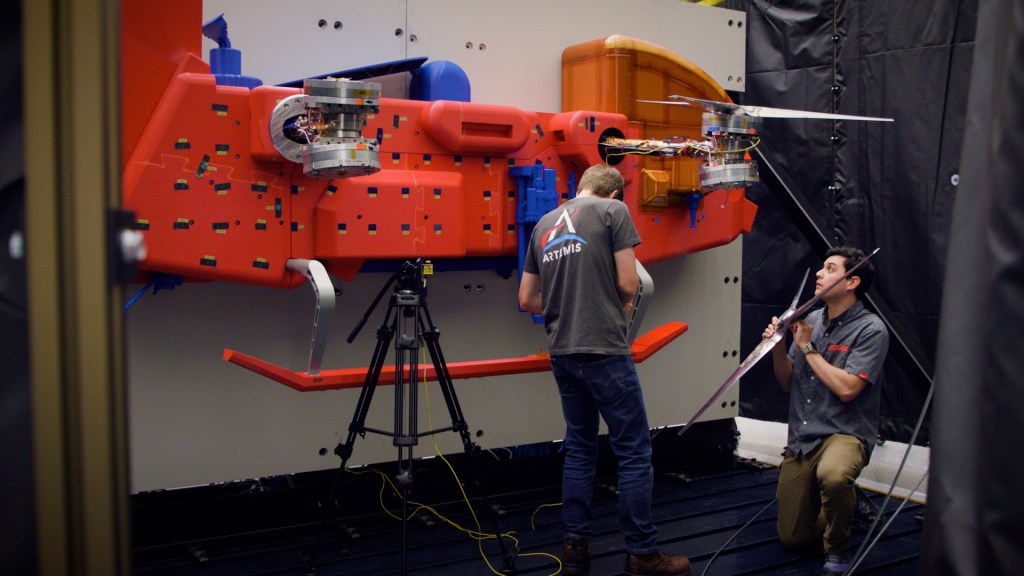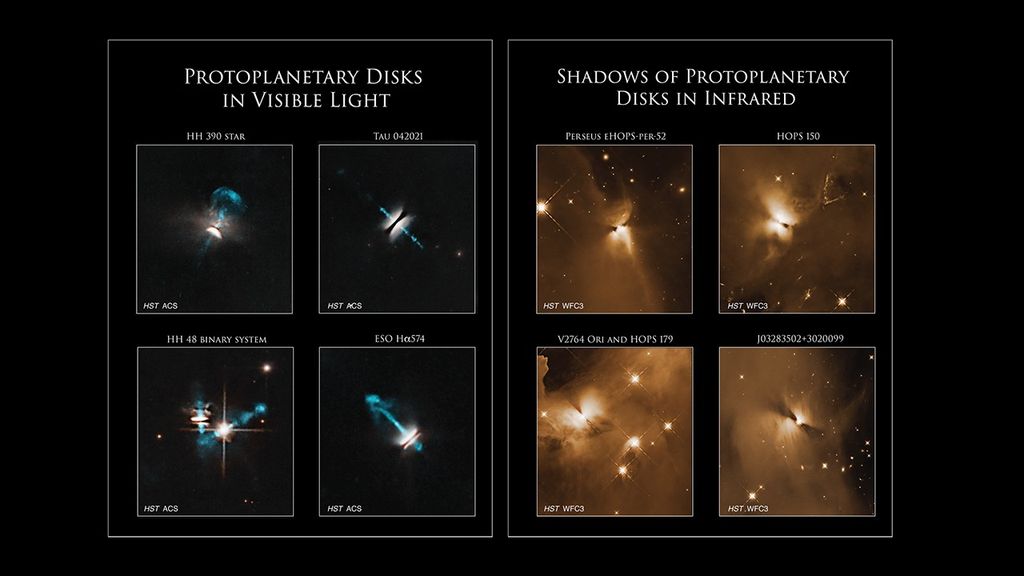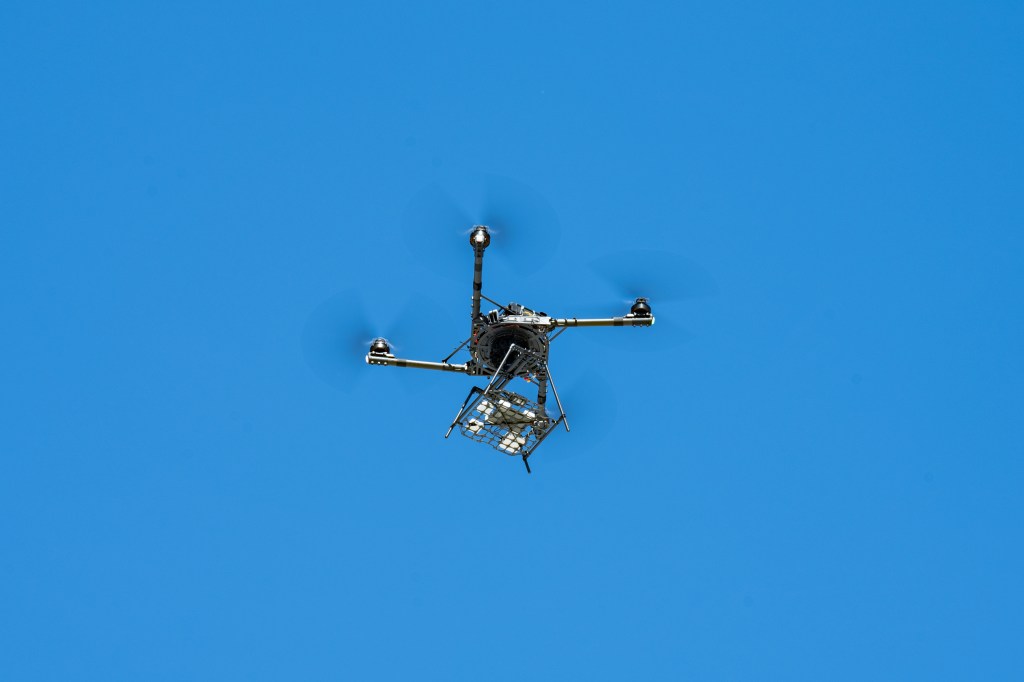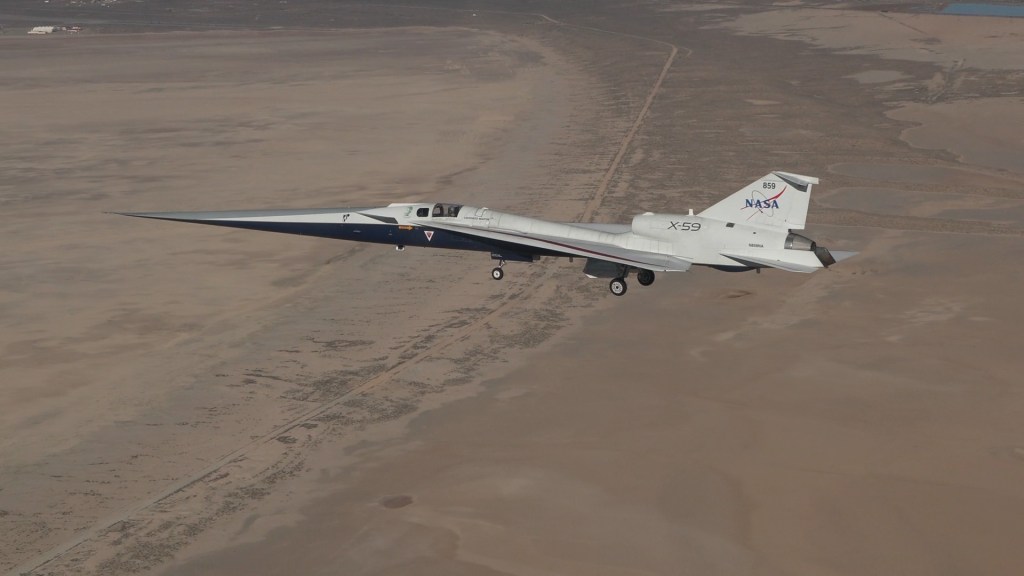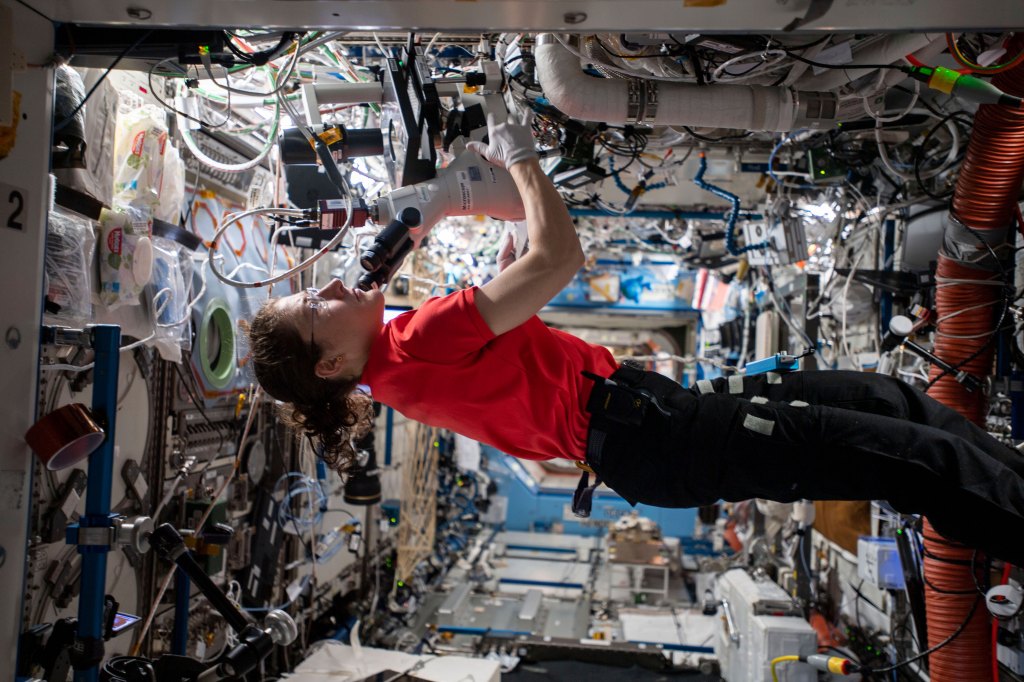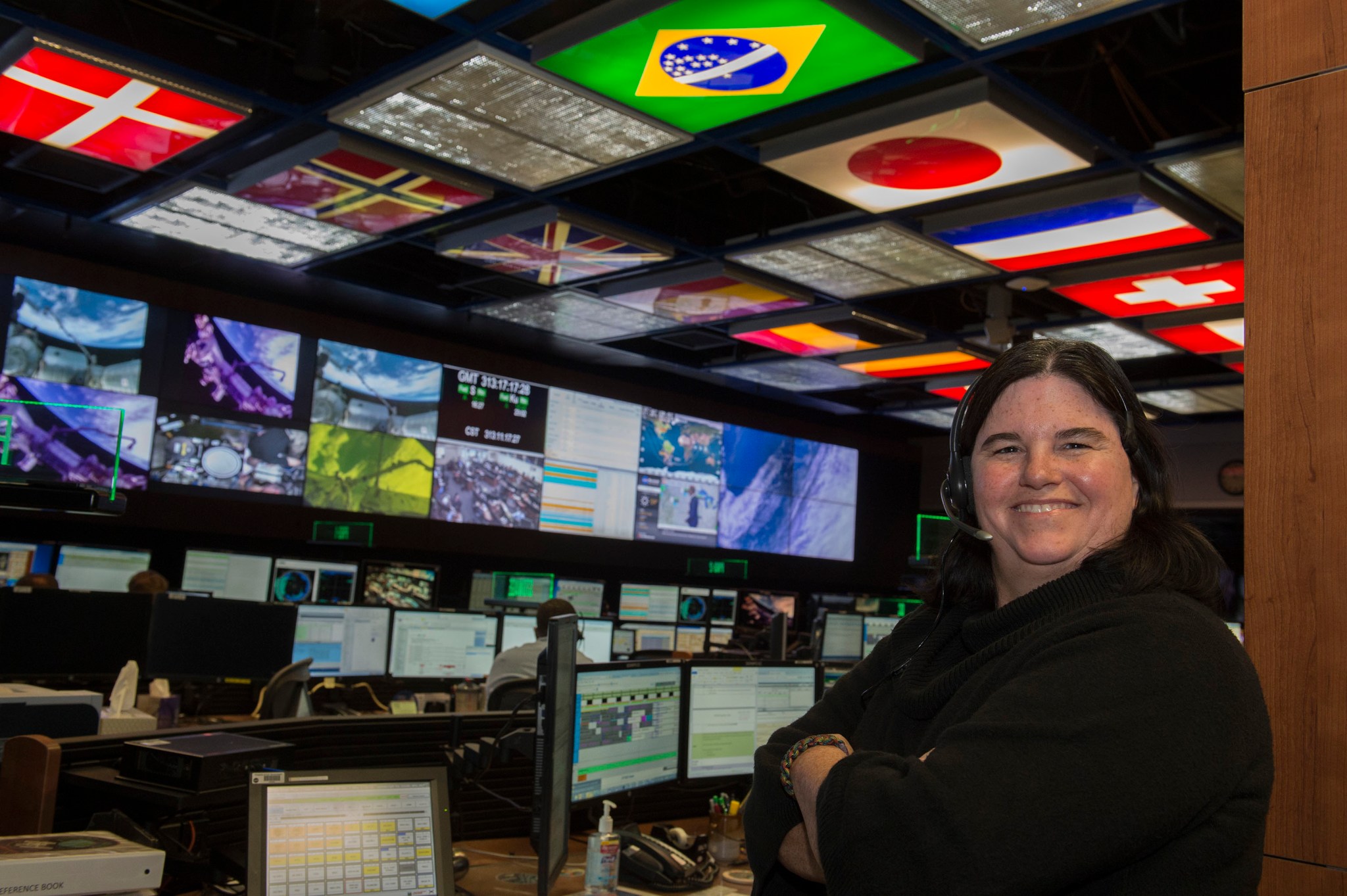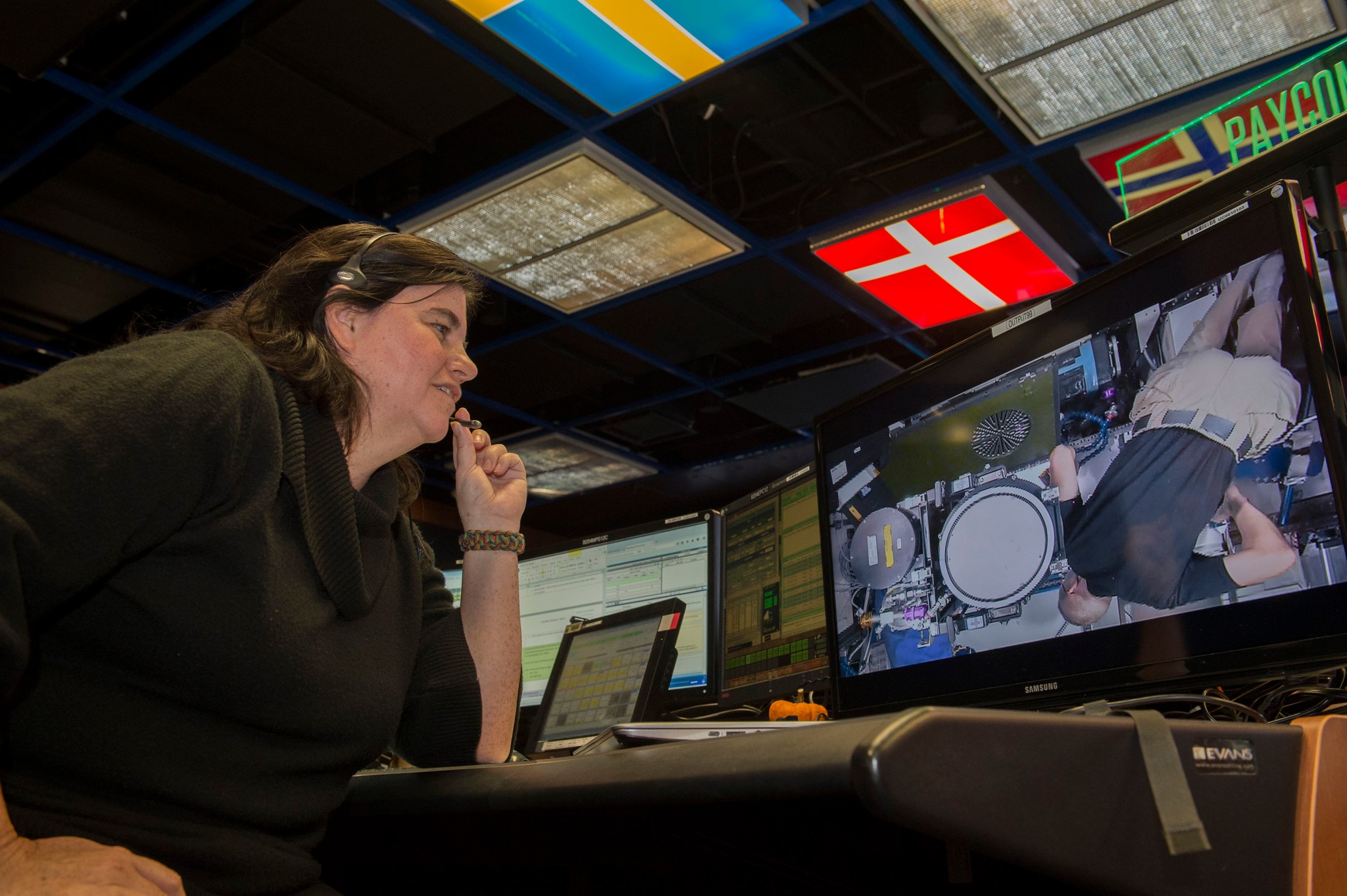As a NASA payload communications manager, Penny J. Pettigrew spends most days in the Payload Operations Integration Center at NASA’s Marshall Space Flight Center in Huntsville, Alabama, communicating with coworkers some 250 miles overhead — the astronauts conducting scientific research aboard the International Space Station.
But whenever she can, Pettigrew makes time to talk with a very different audience. She visits classrooms across the country and via Skype, sharing her story with young people — including those of Native American heritage, like Pettigrew herself.
“It’s so frustrating to meet a young person who thinks certain goals are forever out of their reach because of where they live,” she said. “As a person of Native American descent who didn’t have a lot of advantages growing up, I want to show them that hard work and self-determination can make anything possible.”
The daughter of a U.S. Navy sailor, Pettigrew was born in Honolulu, Hawaii. Her family moved frequently from one duty station to the next. They eventually settled in San Diego, California, the city she still considers home, but prior to that she often felt cast adrift by the military lifestyle. Her mother strove to inspire Pettigrew and her sister with stories of their Choctaw heritage, including that of a maternal ancestor who in the mid-1800s endured the Trail of Tears — the forced removal of Native Americans from their homes in the southeastern United States to reservations west of the Mississippi River.
Then in 1989, Pettigrew, a space program enthusiast from an early age, attended Space Camp at the U.S. Space & Rocket Center in Huntsville, an experience which opened her eyes to all the opportunities in the “Rocket City,” she said. Determined to honor the perseverance of her ancestors and family, she began pursuing her childhood dream in earnest when she received a four-year, Native American scholarship to the Colorado School of Mines in Golden, where she earned her undergraduate degree in chemistry in 1992. In 1996, she received her master’s degree in chemistry, with a specialty in materials science, from the University of Alabama in Huntsville. After achieving her master’s degree, she received a NASA research scholarship to spend the next three years conducting applied materials science research at Marshall.
Beginning in 2000, she went to work for a series of aerospace firms in Huntsville, all supporting NASA and Marshall. Her initial task was to assist in the design and development of the Materials Science Research Rack, a specialized space station experiment container, the use of which she now oversees regularly as a payload communications manager, or PAYCOM.
Pettigrew joined NASA full time in 2008 and found her true calling three years later when she joined “the cadre” — the flight controllers who monitor research on the space station around the clock, seven days a week, 365 days per year at the Payload Operations Integration Center. They stay in direct contact with station crew, with Mission Control at NASA’s Johnson Space Center in Houston and international control centers in Germany and Japan, and with scientists around the world whose experiments are underway on the orbiting science facility. NASA maintains a live UStream feed where public audiences can tune in and observe this interconnected team effort as it happens.
“It’s the cadre’s job to answer crew questions about operations they’re performing, to monitor the health and status of station hardware and to provide a second set of eyes,” Pettigrew said. “The crew has more than a hundred experiments operating at any given time, so we help ensure everything goes smoothly.” Periodically, the team members travel to Houston to facilitate training with the astronauts, gaining hands-on experience with the more complex experiments they’ll be overseeing.
Pettigrew praised the station crew, whose busy schedule leaves little downtime and even less margin for error. “I’m so proud to work with our astronauts,” she said. “Their dedication and enthusiasm is inspiring, and it’s an honor to help them pursue NASA’s goals of better understanding the impact of long space missions on human explorers and preparing ourselves for new journeys of discovery.”
When she’s not hard at work, Pettigrew spends most of her free time with her daughter, Aspen, coaching her softball team, volunteering at her school and traveling to Disney World and other destinations. They even attended parent-child Space Camp together. Pettigrew remains a staunch advocate for that inspiring opportunity, and was among the inaugural honorees inducted into the Space Camp Hall of Fame in 2007.
She also strives to pass on her deep respect for their heritage. Today the Choctaw Nation, which has more than 200,000 enrolled members, primarily resides in Oklahoma, Louisiana and Mississippi. Pettigrew and Aspen visit tribal homes and attend events when schedules permit.
“We stay involved and participate however we can,” she said. “To Aspen, my job — talking to astronauts in space, helping conduct experiments on the space station — is normal. It’s just part of everyday life. It’s my goal now to help other young people, especially young Native Americans, realize that similar careers can be attained by anyone. They just have to follow their passion.”


